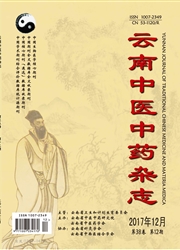

 中文摘要:
中文摘要:
傣族医药学是我国传统医药的重要组成部分,为云南省非物质文化遗产,其对体质的认识颇具特色。傣族医药学认为影响傣族体质的主要是自然因素,包括嘎麻(先天因素)、底沙档三(地域环境)、年龄、肤色、血性、胆性、饮食因素等方面,其根本在于四塔(包括风、火、水、土)功能的强弱。体质学在傣族医药学理论体系中占有重要的地位,在临床上应用也较广,用于指导诊疗、养生、预防和优生优育等方面,它是傣族人民长期医疗实践智慧的结晶,值得进一步去探索和研究。
 英文摘要:
英文摘要:
Dai medicine is the important part of traditional Chinese medicine(TCM), and it is an intangible cultural heritage of Yunnan Province, which has quite distinctive features on the cognition of constitution. Dai medicine considers that the constitution is mainly affected by natural factors, including congenital factor, environment, age, skin color, bloody, gallbladder, diet and so on, the fundament of which is the strength function of four towers(wind, fire, water and earth). The science of constitution has an important position in the theory system of Dai medicine, which is widely used in the clinical application for guiding diagnosis and treatment, health in good, prevention and good birth and good care, etc., and it is the wisdom of Dai people forming in long-term medical practice, worth to further exploration and study.
 同期刊论文项目
同期刊论文项目
 同项目期刊论文
同项目期刊论文
 期刊信息
期刊信息
